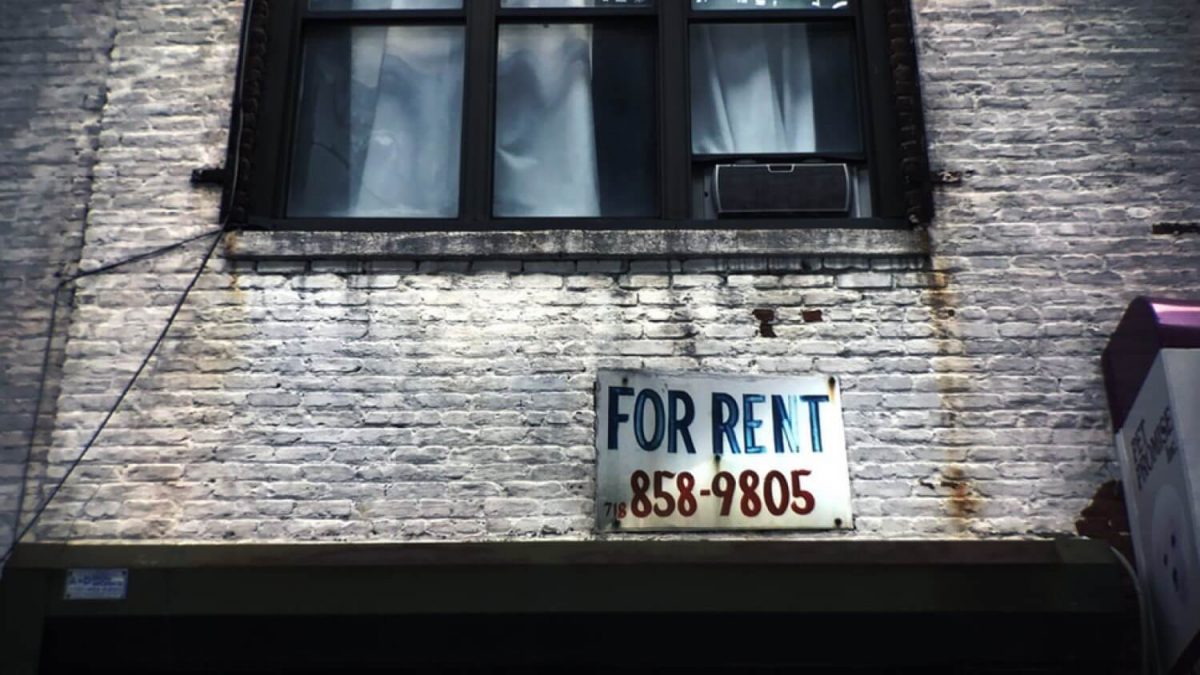The following interview has been lightly edited for length and clarity.
Meet the Interviewee: Andrew Parashis

With a desire to improve students’ experiences in off-campus student housing, Andrew Parashis, a recent graduate from McMaster University, launched Spotted Properties. In just two years, Spotted Properties has become the largest property management business in the Mac community, specializing in student rentals. I got the opportunity to interview Parashis about his expert tips for students interested in off-campus student housing.
1. What sparked your interest in the student housing industry and what inspired you to launch Spotted Properties?
My landlord in second year was absolutely horrible. He never did repairs and never answered his phone. He tried to increase our rent beyond the legal limit and when we refused, he threatened to evict us.
After hearing others complain with similar stories, myself and a friend in engineering decided to fix it. One of the main problems was that many landlords didn’t care for the rules. But we also realized that what made a “bad” landlord was a simple fact that they were an “absent” landlord.
It’s completely understandable, though. Even landlords will have a day job, a family to go home to, and their own lives to lead. It’s hard to make yourself available at the drop of a hat.
We wanted to improve things for both the students and landlords. The landlords didn’t want to be getting calls and text messages at all different hours of the day and night, and the students wanted their home to be taken care of. With this simple understanding, we launched Spotted Properties so we could set a standard in the student housing industry. The tenants pay their rent, and we maintain the property. Simple as that.
2. How should you begin your house hunt?
The idea of living with a bunch of other people may appeal to some, but, for the most part, there are a few key benefits to choosing student housing.
- It’s way cheaper than an apartment
- Student rentals are usually located close to campus
- It’s nice to keep a home environment with relatively like-minded people
Student housing is great, but before you start looking into a communal home, there are a few things you should think about.
Firstly, if you want to live with 20 of your closest friends from your 3rd floor on res, you might find yourself with limited housing options. Do you get the students to fit the house? Or the house to fit the students?
In this equation [Students (x) + House = off-campus living], the housing options are fixed and the only real variable is (x) the number of students you choose to group up with. So it’s a good idea to get a feel for what options your community offers and at what price.
If you want perspective, browse what’s available online! For Mac students, the best websites to use are www.macoffcampus.com and the Facebook “McMaster student housing postboard.” And if you’re looking for places with quality management… our website www.spottedproperties.ca will also have great listings.
The majority of homes are being rented for May 1st and the peak months for looking are January and February. It’s really hard to get your group of friends into house viewings while everyone is cramming for midterms. There are always rental options available for September, but we find that prices starting in the fall season are driven up by lack of options, new undergrads, and international students coming in.
3. What should you consider on the house hunt?
Think about the following:
How many roommates do you want to live with?
- Whether you’re searching with friends or joining into a random group, try to decide what a manageable number of people is for you. This will greatly affect the size of homes you will be looking into. It is a lot easier to coordinate a 3-5 bedroom home than 8 separate people with their own lives, schedules and problems.
- No matter what it is you’re looking at, try to make sure you have an appropriate amount of washrooms and kitchens to give everyone their space.
Consider personality types
- If you lived in Res, you might remember filling out a personality quiz. When applying to live in residence, they ask you if you’re quiet, neat, social, and will even consider what music you like to listen to. It is generally understood that when putting a bunch of people together, it’s best if those people have a few basic things in common. If your top priority is school, you might not be comfortable living with someone who’s always throwing a party.
Don’t look for the property you love, eliminate the properties you don’t want!
- Every house will have some “flaws” and finding a perfect home that your entire group “loves” is not always realistic. It’s best to work backwards, make a list of houses that meet your criteria and cross out the ones that have deal breakers. If you’ve crossed out every house on your list, you might want to re-evaluate.
Price, Distance, Quality

- The three main criteria you can actually evaluate properly is the price of a home, distance from campus, and quality of the home. Typically, you can only end up with two of the three options. Quality usually determines how new a place is or how much space is offered. Distance determines how long it takes you to walk to campus. Price is usually balanced out by quality, distance, and how many people you share with. If you find a place that is cheap and crawling distance from campus, you might find that the quality of the home will suffer. Or if you find a place that offers great quality and an affordable price point, you might notice it is located a little further away from the university or not on the main bus route.
- If you want to try and balance all these factors, 10-15 minutes walking seems to be the sweet spot around.
4. What things should students ask about at an open house?
- What is the rent of the home or each room?
- Are utilities included?
- Is the internet included?
- Is lawn care/snow removal included?
- Is parking included?
- What do we do if there is a problem at the house?
- How do we pay rent?
- What furniture stays and what goes?

